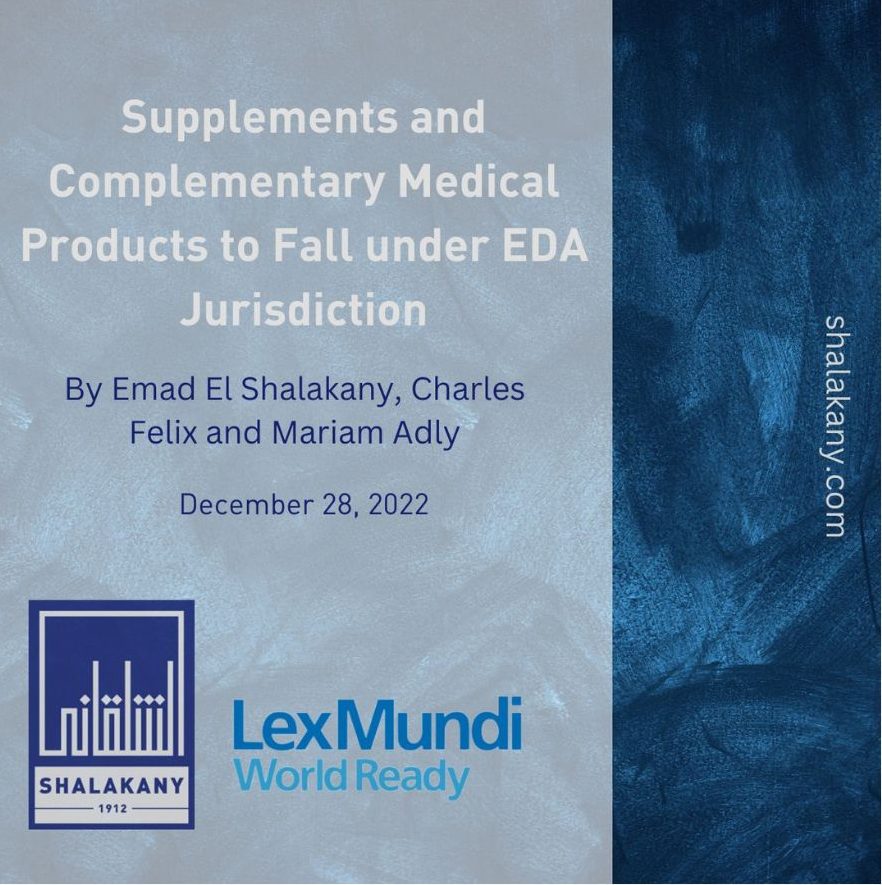On 8 September 2022, the Egyptian Drug Authority (“EDA”) issued Decree No. 572 of 2022 (the “Decree”) transferring the registration of supplements and complementary medical products (collectively “Supplements”) from the EFSA to the EDA.
We shall delve into the key highlights of the Decree as follows:
Key highlights of the Decree
Supplements are defined as “any substance or group of substances that has/have a complementary medical effect used with the aim of treatment, prevention, restoration, correction or modification of physiological functions.”
The Decree prohibits the trade of Supplements outside any pharmaceutical establishments (e.g. trade of Supplements cannot occur in supplement stores).
The Decree differentiates between the notification period of local and imported supplements whereas imported supplements have to pass through a transitional phase before being registered as local Supplements.
The Decree is firm when it comes to Supplements’ availability in the market. Their registration is revoked if they are not available for at least 18 consecutive months.
The registration of all Supplements registered with other governmental entities such as EFSA must be submitted to the EDA within 6 months starting from 15 September 2022. Otherwise, manufacture or trade of any unduly registered Supplements will be prohibited.
Following the issuance of the Decree, the EDA published on its website executive guidelines on Supplements’ registration (the “Guidelines”). The Guidelines detail the requirements and documentation needed for the approval of any supplements. The Guidelines differentiate between the registration of:
-
- Locally manufactured products licensed from companies abroad and that are to be traded locally;
- Imported products; and
- Locally manufactured products intended for exportation only.
Market Reaction
The Decree has caused turbulence in the Supplements sector (comprising around 3,200 companies), with concerns that it would cause increased costs to manufacturers and a decrease in exports. Judicial challenges have already been filed against the Decree.
On the other hand, Dr. Hamada El Sherif, the EDA’s spokesperson, commented that “It’s illogical for nutritional supplements to be sold as medicine and not be subject to the control of the EDA” and noting that complementary medical preparations contain a group of pharmacologically active substances that need to be submitted to the EDA for review.



